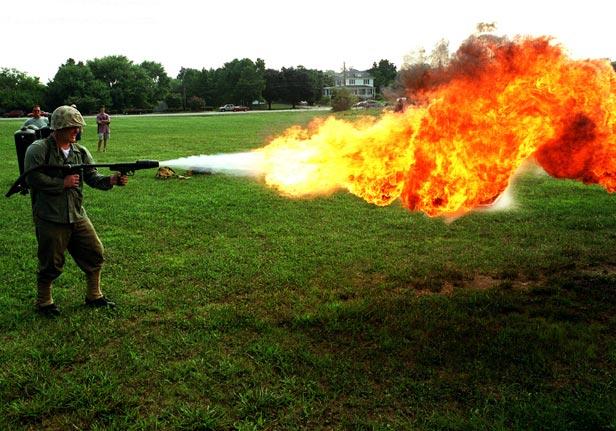[Thread has been answered]
So I was thinking about the concepts behind infinity and I found a very strange problem which I can't seem to fix that uses quite basic maths. Here we go and hopefully you can tell me where I went wrong.
An ellipsis will represent recurring numbers.
INF = Infinitely Large Number
1/3 = 0.3...
[Multiply both sides by 3]
3/3 = 1 = 0.9...
[Alternatively]
Let x = 0.9...
[Multiply both sides by 10]
10x = 9.9...
[Remove x from both sides]
9x = 9
[Divide both sides by 9]
x = 1
1 = 0.9...
1 - 1 = 0
1 - 0.9... = 0.0...1
1 = 0.9, Therefore, 0 = 0.0...1 *
0.0...1 = 1/INF
0 = 1/INF
[Multiply both sides by an INF equal to the previous INF]
0 = 1 **
*Problem A:
0.0...1 is an infinitely small number. Imagine it as 1 divided by an infinitely large number. Now hypothetically, let's say that time is infinite, for argument's sake. One hour out of an infinite amount of hours would then equal 0. That doesn't make logical sense.
**Problem B:
Zero doesn't equal one ... And we can multiply both sides by whatever number we like to make even more nonsense.
---
Now there's a few questions raised here. First of all, can there be different sizes of infinitely small and infinitely large numbers. Some may argue that 0.0...1 does NOT equal 1/INF. This makes sense in the example of the hypothetical time, where 3 hours is longer than 2 hours. While both infinitely small, one is larger than the other. Although this raises the question as to whether it would actually make a difference in the calculation. Also, let me propose another calamity. If I were to ask you of the smallest possible decimal number, could you not multiply that by 10 and it wouldn't get any larger as it can always get smaller?
---
tl;dr
I made a boo boo and I need to find it. Help.
So I was thinking about the concepts behind infinity and I found a very strange problem which I can't seem to fix that uses quite basic maths. Here we go and hopefully you can tell me where I went wrong.
An ellipsis will represent recurring numbers.
INF = Infinitely Large Number
1/3 = 0.3...
[Multiply both sides by 3]
3/3 = 1 = 0.9...
[Alternatively]
Let x = 0.9...
[Multiply both sides by 10]
10x = 9.9...
[Remove x from both sides]
9x = 9
[Divide both sides by 9]
x = 1
1 = 0.9...
1 - 1 = 0
1 - 0.9... = 0.0...1
1 = 0.9, Therefore, 0 = 0.0...1 *
0.0...1 = 1/INF
0 = 1/INF
[Multiply both sides by an INF equal to the previous INF]
0 = 1 **
*Problem A:
0.0...1 is an infinitely small number. Imagine it as 1 divided by an infinitely large number. Now hypothetically, let's say that time is infinite, for argument's sake. One hour out of an infinite amount of hours would then equal 0. That doesn't make logical sense.
**Problem B:
Zero doesn't equal one ... And we can multiply both sides by whatever number we like to make even more nonsense.
---
Now there's a few questions raised here. First of all, can there be different sizes of infinitely small and infinitely large numbers. Some may argue that 0.0...1 does NOT equal 1/INF. This makes sense in the example of the hypothetical time, where 3 hours is longer than 2 hours. While both infinitely small, one is larger than the other. Although this raises the question as to whether it would actually make a difference in the calculation. Also, let me propose another calamity. If I were to ask you of the smallest possible decimal number, could you not multiply that by 10 and it wouldn't get any larger as it can always get smaller?
---
tl;dr
I made a boo boo and I need to find it. Help.

